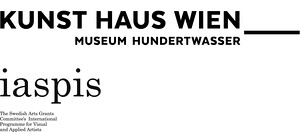Shadow Optics
January 24–March 10, 2019
Untere Weißgerberstraße 13
1030 Wien
Austria
Hours: Monday–Sunday 10am–6pm
T +43 1 7120491
info@kunsthauswien.com
Curated by Basak Senova
The Kunst Haus Wien, renowned for its express interest in and critical approach to pressing ecological issues, presents Lina Selander’s Shadow Optics. The title of the exhibition references an extreme light, as if inverted, exposing darkness as well as light; a no less photographic event than the atomic bomb over Hiroshima, inscribing shadows on the surface of the city.
The exhibition assembles a group of works and documents describing a migration between utopia and collapse, where technological and/or ideological development as generators of energy and destruction are inescapably linked.
Selander’s films and installations can be read as compositions or thought models, where ideas and conditions are explored and weighed. She examines relationships between memory and perception, photography and film, and language and image. Shadow Optics explores the different possibilities of the material: re-searching, re-visiting, and re-editing intersected aspects and resources of film, photography, objects, motives and ideas.
The exhibition is comprised of Lenin’s Lamp Glows in the Peasant’s Hut (2011), with a vitrine consisting of radiographs and a stainless-steel text plaque; Model of Continuation (2013); and Överföringsdiagram nr 2 [Diagram of Transfer No. 2] (2018-2019). Lenin’s Lamp Glows in the Peasant’s Hut (2011) is made partly in dialogue with Dziga Vertov’s film, The Eleventh Year from 1928, about the construction of a hydroelectric plant on the Dnieper, juxtaposing it with contemporary footage from nearby Pripyat, a ghost town since the Chernobyl disaster. Images from the Swedish Museum of Natural History and the Chernobyl Museum in Kiev, among other places, are also included, with samples of fossils—the earliest imprints documenting prehistory. Radiographs displayed in a vitrine mark the striking similarity between fossils, early photography and the discovery of radioactivity, which, in turn, seems to herald the invisibility inherent in the code of digital photography.
The steel plaque reflecting the moving images as well as the surrounding space also constitutes a map or diagram of the work. Deriving from the makeup of a documentary—a “ground level” index of sources and narrative, intersecting mine shafts open and form a network of intersecting tunnels, linking disparate phenomena and images, archaeologically piecing together fragments into a narrative. Model of Continuation re-visits Selander’s earlier work To the Vision Machine (2013) and brings together the material filmed in Hiroshima, images from the atomic bombings of Hiroshima and Nagasaki intersected with the images of machineries, and artifacts from a museum of natural history. The work screens a film within a film by shifting the perspective and the cognizance of the audience with the play between the presence and the absence of the camera.
The new film, Överföringsdiagram nr 2 [Diagram of Transfer No. 2] (2018-2019), is an experimental 16 mm film transferred to HD, and contains material from Schönbrunn Zoo and AKW Zwentendorf in Austria.
In conjunction with the exhibition, a book edited by Basak Senova that discusses the ideological, political, ecological, aesthetic and methodological aspects of the project will be launched at the opening of the exhibition. The book starts with a preface by Bettina Leidl and Verena Kaspar-Eisert, and includes essays by Elke Krasny, Björn Norberg, and Basak Senova, along with an extensive interview with Lina Salender.
Lina Selander’s solo shows include Argos – Centre for Art and Media, Brussels; Iniva (Institute of International Visual Arts), London; Index – The Swedish Contemporary Art Foundation, Stockholm; Moderna Museet, Stockholm; VOX – Centre de l’image contemporaine, Montréal. She was the Swedish representative at the Venice Biennale 2015. A selection of her group shows include: The Kyiv Biennale 2015; Seoul Media City Biennale 2014; Manifesta 2012 in Genk, Belgium; The Bucharest Biennale 2010; and exhibitions at the Haus der Kulturen der Welt, Berlin. Lina Selander is also one of the artists taking part in the Cross Sections project (2017-2019), developed and curated by Basak Senova in Vienna, Helsinki, and Stockholm.
Both the exhibition and the book are generously supported by Iaspis.
Open daily 10am-6pm



